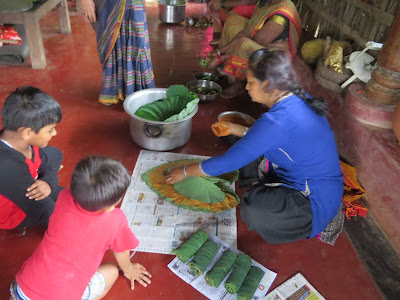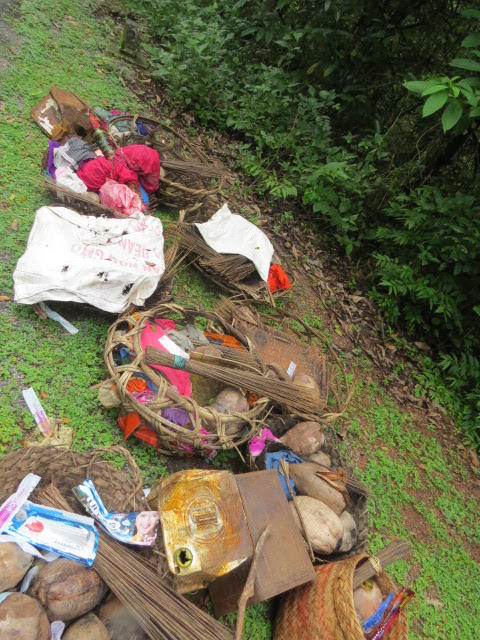Two girls from Mount Carmel College,Bangalore - Harita and Meghana! One is known to BuDa for many years and the other was experiencing the tough life fresh.They stayed in Angadibail forest for thirty days without internet, without electricity without shampoo, conditioner, toothpaste ,without fan far away from comfort zone.Went back home grown ,stronger, and changed .Angadibail forest..Beera ,Rangi (you named her !) and Eshwaranna are going to miss you girls. Thankyou ! We also thank Advithi who supported you with your project in the forest -BuDa team
 |
| silent nights in the forest |
Sometimes wanting to stay back,
Sometimes wanting to go home,
Sometimes wanting to feel the
forest,
Sometimes wanting to feel
family,
Sometimes learning,
Sometimes pushing
ourselves
Here,
I go back home GROWN, STRONGER
and CHANGED .
Taking things,
Taking memories
Taking love
WILL BE BACK SOON…..
Love for stars,
Love for forest,
Love for nature,
Love for earth,
LOVE NEVER DIES!!”
We both believe the poem is not enough to
describe the internship in Angadibail. Probably it is just 0.01pc of our
adventurous experience there. For us city girls, the time there we had was a
blessing- away from home, packed off in and around the small house amidst the
lush green forest.
While we woke up to screaming alarm clocks here in
Benguluru, the horseflies annoyingly buzzed and woke us up every single day
without fail! Walks with our ‘Beerappa Swamy’ to get milk was what we loved to do-
first thing in the morning.
 |
| Eshwaranna teaching us how to arrange paddy hay |
 |
| Kutri- stocking paddy hey for the cows |
 |
| our cooking routine |
 |
| Harvesting ground nuts |
From experiencing night forest walks to eating jackfruit papads, from learning constellations from Miya Bhai to suspecting a cat to be a leopard in the dark, from building mud walls to helping Eshwarnna prepare for the monsoons, from walking in search of network to call home to walking to a far neighbor’s house to see election results, from doing coconut harvest to ‘weightlifting those sacs’, from surviving the nights on solar lanterns to waiting for the first rain of the monsoons, from fighting paddy allergy to having full-moon light dinners, from cooking on fire to eating charred food, from waiting for guests for the kokum harvest to craving for the silence of the forest each night, from mixing kokum preserve in the hot sun to drinking lemon grass tambuli- WE HAVE DONE IT ALL!!
 |
| Eshwaranna explaning Mann kaayi -a medicinal mud ball he found in the monsoon |
 |
| Advithi helping us in illustrating summer medicinal plants of Angadibail |
Our internship was to document ‘Summer
medicinal plants of Angadibail’. That we would say was just less than half of
the things we did there. From enjoying every meal to learning the value of
food- we learnt it all. The ride was super bumpy filled with lots and lots of
new things that we learnt. Realizing the forest has treasures at each step we
take, understanding the medicinal value of ‘weeds’, listening to calls of
various animals to going to have a hot water bath every night after a long
day’s work- the experiences have made us more stronger, responsible, confident,
humble, calmer and most importantly turned us into fighters- we are ready now
to take upon any challenge we face!
 |
| Kokom harvest festival |
We are forever indebted to the organization
and everyone who help us survive those tremendous thirty days
LOVE,
THE ANGADIBAIL GIRLS J









































